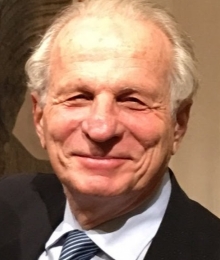The Jurisprudence of Crime: Interdisciplinary Perspectives
Course Information
- Course Number
- L6428
- Curriculum Level
- Upperclass
- Areas of Study
- Criminal Law and Procedure
- Type
- Lecture
Section 001 Information
Instructor
 George P. Fletcher
Cardozo Professor of Jurisprudence
George P. Fletcher
Cardozo Professor of Jurisprudence
Section Description
The theoretical side of crime and justice has long been dependent on philosophical input. In the 18th and 19th centuries, the key figures were Immanuel Kant and Jeremy Bentham. In the 20th century, Robert Nozick, Hans Kelsen, H.L.A. Hart, Ronald Dworkin, Sydney Morgenbesser , Harry Frankfurt, and Joel Feinberg joined the ranks. Today, the theory of crime and justice need renewed philosophical attention, particularly as it relates to the following issues: (1) the reason for the binding nature of the law; (2) the concept of sovereignty in an international legal order; (3) the concept of victimhood and the relevance of religious thinking to secular legal issues; (4) the nature of equality in punishment; (5) the basic concepts of criminal law, e.g. action, causation, intention, efficiency, consent, harm, authority, and desert, both negative and positive; and, (6) the theory of interpretation.
While modern legal education often seeks to explore some of these issues, they can never do so thoroughly without addressing and analyzing their theoretical foundations.
A major in philosophy is not required.
Readings will be drawn from the authors mentioned above and the instructor.
Students will be required to write a paper based on original research and to make a presentation in class.
- School Year & Semester
- Fall 2023
- Location
- JGH 908
- Schedule
-
Class meets on
- Tuesday
- Thursday
- Points
- 3
- Method of Evaluation
- Paper
- J.D Writing Credit?
- Minor (automatic)
- Major (only upon consultation)
- LLM Writing Project
- Upon consultation
Learning Outcomes
- Primary
-
- Analytic Sophistication
- Clear writing ability based upon recognition of both sides of every issue
- Presentation of legal issues in an inter-disciplinary context
Course Limitations
- Instructor Pre-requisites
- None
- Instructor Co-Requisites
- None
- Requires Permission
- No
- Recommended Courses
- None
- Other Limitations
- None